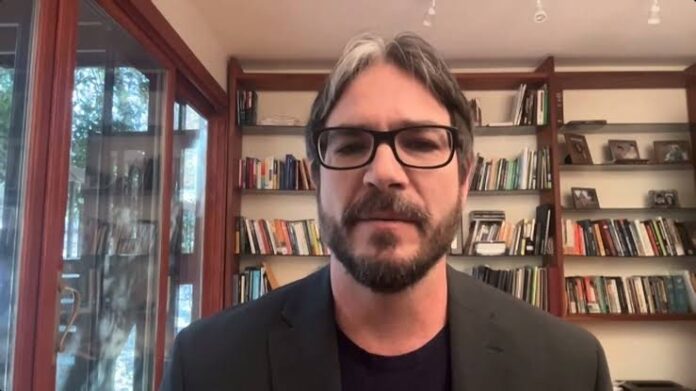In the wake of the devastating wildfires that have swept through Los Angeles, two prominent climate scientists, Dr. Varun Sivaram and Dr. Peter Kalmus, have pointed to a stark underlying cause: the burning of fossil fuels.
Their insights shed light on a narrative that intertwines environmental policy, scientific research, and the immediate impact on local communities.
Dr. Varun Sivaram, a senior fellow for energy and climate at the Council on Foreign Relations, alongside Dr. Peter Kalmus, a climate scientist known for his work “Being the Change: Live Well and Spark a Climate Revolution,” both with firsthand experience of the fires’ destruction, have linked the increasing frequency and severity of these wildfires to climate change exacerbated by fossil fuel emissions.
The correlation between climate change and wildfires has been extensively documented. Climate change leads to higher temperatures, extended dry periods, and more intense weather patterns, all of which contribute to conditions ripe for wildfires.
According to recent analyses, California has seen significant increases in the length and extremity of fire seasons, a trend directly linked to global warming. Dr. Sivaram emphasized, “We are seeing the effects of climate change in real-time. The increase in wildfires is a direct consequence of our continued reliance on fossil fuels.”
Dr. Kalmus, who has witnessed the transformation of his former neighborhood in Altadena into what he describes as a “hellscape,” adds a personal dimension to the data.
He notes the psychological and emotional toll of watching areas he once called home succumb to fire, driven by a climate crisis largely fueled by fossil fuels. “These fires are not a new normal; they’re a staircase to a hotter, more hellish Earth,” he stated in a recent interview.
The conversation with these experts also veered into the realm of policy. Both scientists advocate for a swift transition away from fossil fuels. Dr. Sivaram has launched a “Climate Realism Initiative” at the Council on Foreign Relations, aiming to push for policies that reflect the urgency of reducing carbon emissions.
He argues for national, state, and local regulators to adjust insurance regulations to reflect the true cost of living in high-risk areas, thereby incentivizing safer, more sustainable urban planning.
Dr. Kalmus, on the other hand, has been vocal about the need for immediate action on a personal and governmental level.
His decision to leave Los Angeles was not just a personal choice but a statement on the necessity for broader systemic change. He critiques the fossil fuel industry for blocking climate action and calls for a climate emergency declaration to expedite the shift away from fossil fuels.[]
The fires have not only highlighted the environmental impact but also the human cost. With thousands of homes destroyed and lives upended, the immediate response includes firefighting efforts, but the long-term solutions lie in climate policy reform.
The current crisis has led to discussions on social media about the need for better forest management and fuel reduction strategies, though these are often overshadowed by the debate on climate change. Trending discussions on X reflect a community grappling with these issues, with calls for both immediate relief and long-term environmental strategies.
The LA fires serve as a grim reminder of the consequences of our energy choices. As experts like Dr. Sivaram and Dr. Kalmus argue, the root cause lies in our continued reliance on fossil fuels. The path forward involves not just firefighting but a comprehensive reevaluation of how we manage our environment, our policies, and our future. The message is clear: to prevent future catastrophes, we must act decisively on climate change, starting with a significant reduction in fossil fuel use.
















